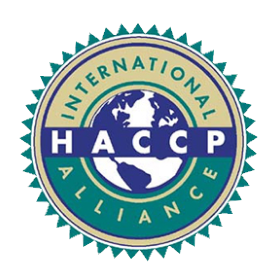PCQI Online
$588 $470 USD with promo code MID20
15 hours – Elevate food safety with the proper training and experience.

Navigating the complex landscape of exporting to the United States can be challenging. Let us help you ensure your seamless compliance with the Food Safety Modernization Act (FSMA).
Our expertly curated virtual training equips you with the skills needed to become a Preventive Controls Qualified Individual (PCQI), ensuring your operations align with FSMA’s rigorous regulations. Guided by FSPCA-trained lead instructors and using FDA-recognized materials, you’ll not only meet but exceed the expectations set by the Preventive Controls for Human Food rule. This training empowers you to develop and implement risk-based preventive controls, fostering a proactive and systematic food safety program that the FDA demands from exporters like you.
Upon completion of the course, you can print a copy of your FSPCA-issued certificate to show that you’ve completed FDA-recognized PCQI training.

In this part of the course, you’ll not only grasp the difference between Hazard Analysis Critical Control Points (HACCP) and Hazard Analysis Risk-based Preventive Controls (HARPC), but we’ll also simplify the journey of transforming your current HACCP plan into the innovative HARPC strategy. Carefully tailored for European food manufacturers involved in or interested in exporting to the United States, this accredited course bears the esteemed seal of approval from the International HACCP Alliance and comes with their seal for your course completion certificate.
Upon completing this comprehensive training, you’ll confidently handle crucial aspects of FSMA compliance, including:
Download FSPCA worksheets to document your product description, hazard analysis, and preventive controls.
Anticipate Change with Dual PCQIs for Seamless Compliance: Safeguard your compliance by having at least two Preventive Controls Qualified Individuals associated with each facility. It’s essential to avoid compliance gaps due to employee transitions or absences and enhance internal checks and balances.
Strengthen Record Keeping: Effective recordkeeping is as essential as establishing preventive controls. Records are not just paperwork—they’re the backbone of your Food Safety Plan.
Mandatory Compliance for U.S. Export: Your organization’s food safety plan, crucial for exporting to the United States, must be approved by a Preventive Controls Qualified Individual (PCQI).
Empower Your Relationship with U.S. Importers: Your partnership with U.S. importers is evolving under FSMA. U.S. Importers require stringent documentation, including your food safety plan and records demonstrating adherence to preventive controls. This collaboration underscores the importance of consistent record-keeping.
Clear Benefits of PCQI Investment: Beyond U.S regulatory compliance, PCQI training helps demystify the path to efficient food safety plan management. While developing a plan without formal training is possible, investing in PCQI training streamlines the process and enhances effectiveness.

“The training was a great introduction to the role of a PCQI. After this training, I am much more confident in starting to tackle more complex and involved food safety activities.”
– Keith Scott, Bunge